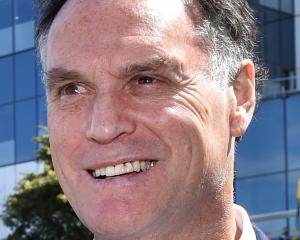Judge Stephen O'Driscoll said there had been no cases comparable to that of 72-year-old David Bruce Chilcott, and it was complicated by the fact there appeared to be no sinister reason for the prolonged and persistent offending.
He then sentenced the pensioner to to two and a-half years in prison.
It would have been a longer sentence because passport fraud was taken so seriously, especially in the post-9/11 security-conscious world, but it appeared Chilcott's intentions were only to use the passport so he could travel for his car-importing business, rather than for any nefarious purpose.
In July Chilcott admitted two charges of false representation in relation to applying for the passport in someone else's name and 11 representative charges of knowingly using the false passport to travel to and from the United States and Australia between the year 2000 and June this year.
He first applied for the fraudulent passport in 2000 after he overstayed in the United States and was not allowed back in, and reapplied for a new one in the same name in 2010.
He was found out this year when he had his fingerprints taken and checked as he tried to enter the United States.
The offending was serious and aggravated by the fact it was repeated, prolonged and premeditated.
Chilcott would also likely have continued using the passport had he not been caught, the judge said.
From a starting point of four years' prison for the offending that happened after the relevant laws were tightened in 2002, he deducted 18 months for the early guilty plea, and because the offending appeared to not have been done for any sinister reasons and Chilcott appreciated the seriousness of what he had done, and was now regretful.
On the other hand, a country had an inherent right to know exactly who was within its borders, the judge said.
For Chilcott's offending before 2002, he was sentenced to nine months in prison, to be served concurrent with the other sentence.












